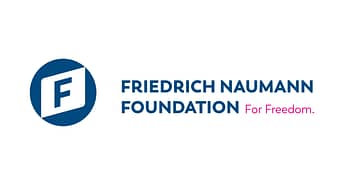Authors and affiliation: Peter Dubóczi, Director of Infosecurity.sk and research fellow at Adapt Institute, and Michaela Ružičková, Deputy director of Infosecurity.sk and research fellow at Adapt Institute
Reviewer and affiliation: Stanislav Matejka, Vice-chairman of the European Platform of Regulatory Authorities and Head of the Analytical Department of the Council for Media Services in the Slovak Republic
Introduction
- Slovakia largely ignored the issue of disinformation and hybrid threats until 2020. Apart from a few exceptions, the role of the state in this respect was mainly covered by NGOs.
- The year 2020 was a wake-up call for Slovakia – the COVID-19 pandemic and consequent infodemic, which continues to this day in connection with the war in Ukraine. As the topic began to resonate more in society, after the 2020 parliamentary elections, the Slovak government took the first steps to limit hybrid threats, mainly by updating strategic documents, concepts, or action plans.
- The disinformation ecosystem has been forming in Slovakia since 2014. Since then, the disinformation scene in Slovakia has diversified considerably. Nowadays, it concerns not only alternative and marginal websites but also various actors on social media, especially Facebook, the dominant platform in Slovakia.
- At present, politicians are particularly evident disinformation spreaders, thanks to their visibility, the possibility to attract engage the public, and shape discussions on societal topics. Through politicians, disinformation narratives enter mainstream information circulation.
- Topics related to Russian geopolitics have long been a dividing line in the Slovakian public discourse between pro-Western and pro-Russian views. These matters carry considerable mobilisation potential, which can be considered a vulnerability ahead of the 2023 early parliamentary elections.
- Given the historical experience with the USSR, positive sentiments towards Russia (paradoxically) persist in Slovak society. These are linked to the idea of pan-Slavism and deepen vulnerability to Russian propaganda, in relation to the war in Ukraine, with which Slovakia is neighbouring. The situation is also exploited by the Russian Embassy in Slovakia, which is extremely active in information and influence operations as evidenced by the Beacon Project list.
- The low level of critical thinking and media literacy makes Slovak society the most most prone to believe in conspiracy theories among the CEE countries, as evidenced by the 2022, Globsec Trends survey. Moreover, according to a 2023 Reuters Institute study, only 27% of Slovaks trusted the media.
To gain a more accurate understanding of the Slovak disinformation landscape, click on the below button.
We have more European country factsheets. Curious to discover the others? Click here.
This project is funded by the Friedrich Naumann Foundation for Freedom.



